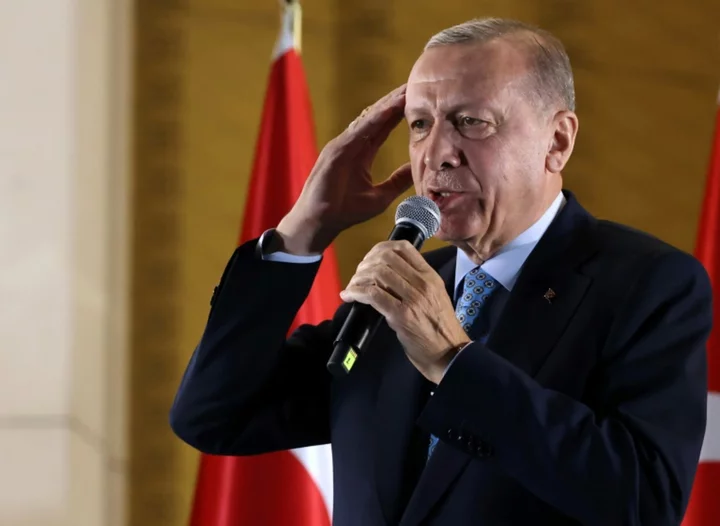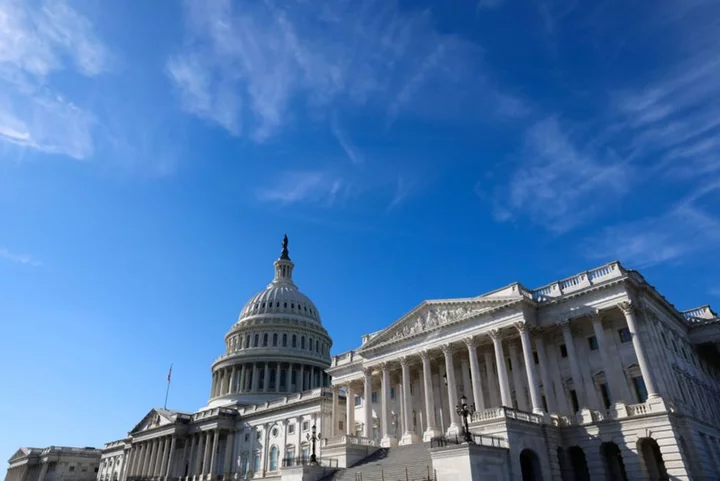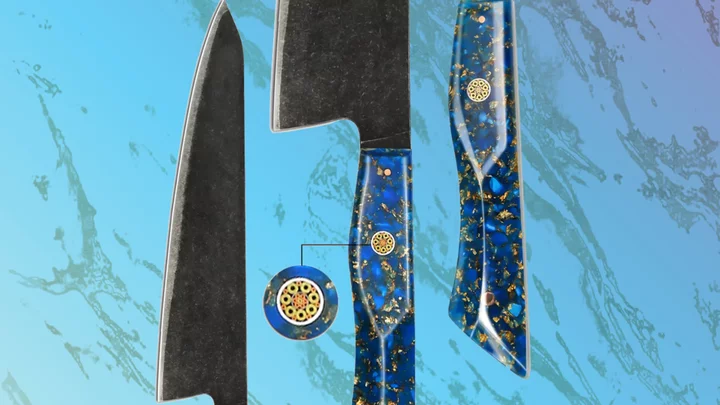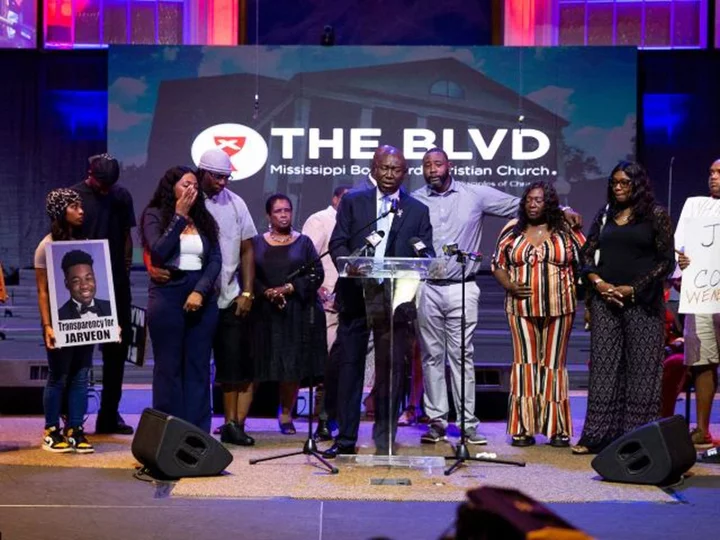Turkish President Recep Tayyip Erdogan on Monday confronted the tough task of uniting his deeply divided country after winning a historic run-off election to extend his two-decade rule to 2028.
Turkey's longest-serving leader brushed aside a powerful opposition coalition, a biting economic crisis and widespread anger following a devastating February earthquake to beat secular challenger Kemal Kilicdaroglu in Sunday's vote.
But the four-point victory margin was Erdogan's narrowest of any past election, highlighting the sharp polarisation the Islamic-rooted conservative will contend with during his third and final term as president.
Erdogan attempted to sound conciliatory in a victory speech to thousands of jubilant supporters gathered outside Ankara's presidential palace, calling on Turks to "come together in unity and solidarity".
Kilicdaroglu remained defiant by vowing to "continue the struggle" against Erdogan and his AKP party, which has dominated Turkish politics since 2002.
"Our elders taught us to struggle... we will not lose or give up on this country with one election," Bugra Iyimaya, a 28-year-old academic, told AFP in Istanbul.
"We will resist and fight until the end."
Erdogan's elated supporters hailed the man they call "Reis" (chief) after he won the first run-off in Turkey's history.
"The person who is beneficial to our country won. I'm very happy because of his beliefs, the rest has no importance. The country comes first," street vendor Gursel Ozkok, 65, told AFP in Ankara.
"The man of the people won," blared the front page of Monday's pro-government daily Sabah.
- 'It could get ugly' -
Having harnessed a coalition of nationalist, conservative and religious voters, Erdogan "will double down on his brand of populist policies... political polarisation is here to stay", said Emre Peker of the Eurasia Group consultancy.
Relieving Turks of the country's worst economic crisis since the 1990s is one of Erdogan's urgent priorities.
Years of development fuelled by infrastructure projects and a construction sector boom earned him huge popularity and a loyal voter base that has never abandoned him.
But inflation is now running at more than 40 percent, partly exacerbated by Erdogan's unorthodox policy of cutting interest rates to try and cool spiralling prices.
Analysts say Erdogan's lavish campaign spending pledges and unwavering attachment to lower interest rates will further strain banks' currency reserves and the lira, which edged down against the dollar on Monday.
"The current set-up is just not sustainable," noted Timothy Ash of BlueBay Asset Management, pointing to the tens of billions of dollars the central bank has blown to prop up the lira.
If Erdogan refuses to perform a U-turn on interest rates and abandon the lira, "it could get ugly", he warned.
A colossal reconstruction effort in Turkey's southeast is still at an early stage after February's earthquake that killed more than 50,000 people and destroyed entire cities.
The disaster compounded the economic difficulties as hundreds of thousands lost their livelihoods overnight and forecasters cut Turkey's 2023 growth outlook, with the damage estimated at more than $100 billion.
- 'Balancing act' -
US President Joe Biden and Russia's Vladimir Putin were among the world leaders lining up to congratulate Erdogan, but major diplomatic conundrums lie in the 69-year-old's in-tray.
NATO partners are anxiously waiting for Ankara to approve Sweden's bid to join the US-led defence alliance.
Erdogan has blocked the bid, accusing Stockholm of sheltering Turkish opposition figures with alleged links to outlawed Kurdish militants.
Observers expect Erdogan to continue playing a bridging role between Russia and its Western partners for Turkey's benefit.
"Another five years of Erdogan means more of the geopolitical balancing act between Russia and the West," said Galip Dalay, an associate fellow at the Chatham House think tank.
"Turkey and the West will engage in transactional cooperation wherever its interests dictate it," not joining Western sanctions on Moscow for the war in Ukraine and seeking economically profitable relationships, he added.
Ties with neighbouring Syria remain at a low ebb after Turkey backed rebels fighting President Bashar al-Assad in the civil war. Recent Russian-mediated talks failed to achieve a breakthrough towards a normalisation of relations.
Monday also coincides with the anniversary of the 1453 conquest of Constantinople -- Istanbul's old name -- by the Ottomans, a symbolic commemoration following Erdogan's victory and his far-right nationalist allies' parliamentary majority.
bur-imm/zak/bp









